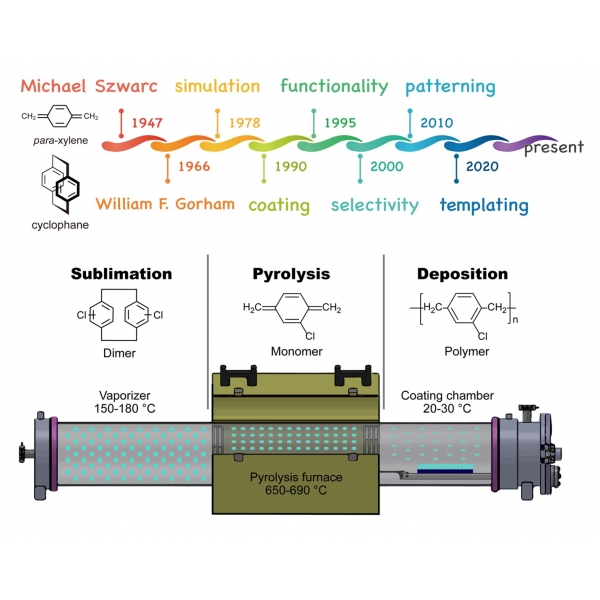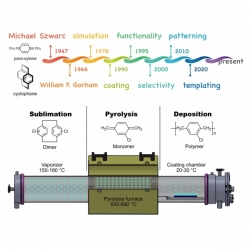Abstract
Poly(para-xylylene) (PPX) is a robust and biocompatible coating material that is widely used in various applications, including electronics, aerospace and defense materials, automotive materials, and biomaterials. In this progress report, recent developments in PPX technology ranging from the advancement of physical chemistry properties and structural properties for device integration to the transformation of 3D monolith materials of PPX with controls in outer and inner structures at the micro- and nanometer scales are highlighted. Based on emerging chemistry studies on [2.2]paracyclophanes, which are primarily used precursors to synthesize PPX via vapor deposition polymerization, functionalization, and the creation of a wide variety of functional PPX derivatives are demonstrated without resistance. Widely used as an interface coating material, PPX is processed to form integrated structural materials and has already been found to be useful in the market as part of electronic and medical implant products. Using a newly innovated transformation to fabricate PPX through templates (metal-organic frameworks, liquid crystal, ice crystal), 3D monoliths, nanoscale particles, hierarchical and gradient interior structures, and dynamically transformable shapes at the nanoscale are demonstrated. A vast landscape of novel applications and device products is expected based on the already established R&D and market maturity of PPX.
KEYWORDS: functional coating, interface, poly(para-xylylene), structural material, vapor deposition polymerization.png)

